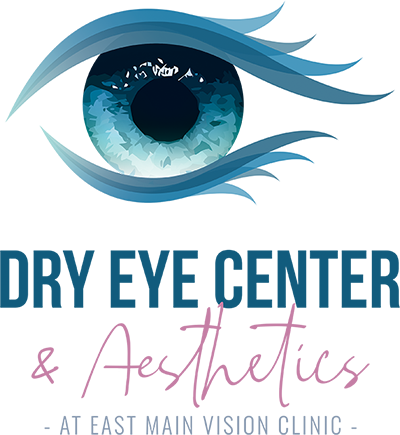April 14, 2020

Dry eyes can be incredibly uncomfortable with symptoms such as a burning, watering, pain, or redness. According to experts, this eye condition can be caused by insufficient tear production or by quick evaporation of tears. Some people even wake up with dry eyes, which is never a good start to the day. Let’s discuss why this happens.
Nocturnal Lagophthalmos
No, that word is not in another language! But it is often as problematic as it is difficult to pronounce. If you do not close your eyes completely when you sleep, you have something called nocturnal lagophthalmos. Medical research shows that it is often caused by a weakness of your facial nerve, also known as the seventh cranial nerve. Symptoms of this eye condition can include light sensitivity, redness, scratchiness, blurred vision, poor quality of sleep, a sensation of something rubbing against your eye, irritation, and burning sensation.
Bell’s palsy, Guillain-Barré syndrome, tumor, stroke, jaw or skull trauma, or damage to the cerebellar artery may cause a weakness in the facial nerve.
Keratoconjunctivitis Sicca
Here we have another unpronounceable word! Sometimes called K-sicca, this term is one of the major causes of dry eye syndrome. Tears have four major components — oil, water, mucus, and antibodies. These elements should all be in your tears to make sure the surface of your eye receives protection and nourishment. The oil prevents the water in your tears from evaporating. The water hydrates your eyes and the mucus spreads out the tears over the surface of your eyes while the antibodies protect your eyes from infections. If one of these components is not produced in the right amount, the quality of your tears could be compromised. The most common cause of dry eyes is keratoconjunctivitis sicca, which results from a deficiency in the amount of water in your tears.
Insufficient Production of Tears
The main job of your tears is to lubricate your eyes. Your dry eyes may be brought about by insufficient production of tears due to several factors. For example, side effects of certain medications, such as antidepressants, blood pressure medications, antihistamines, and decongestants could affect your tear production. While medical conditions such as Sjögren’s syndrome, diabetes, thyroid problems, and rheumatoid arthritis may also decrease tear production.
Aging also decreases tear production since, according to some studies, oxidative stress, use of topical and systemic medications, lid laxity, hormonal changes, and inflammatory conditions also tend to decrease the production of tears.
Seasonal Allergies
Another factor that could lead to dry eyes are seasonal allergies. Windy climates, pollution, mold spores, and dust mites can irritate your eyes as you sleep causing you to experience dry eyes when you wake up. If you’re taking antihistamines for your seasonal allergies, you may need to discontinue them as this allergy medication is likely to increase your uncomfortable dry eye symptoms.
Given all of this information, there are ways that you can avoid dry eyes, especially if you experience it in the morning right when you wake up. At East Main Vision Clinic, our goal is to help you regain your eye health and comfort. Please schedule an appointment at our clinic in Puyallup, WA by calling 253-780-0700 now. We look forward to seeing you soon



